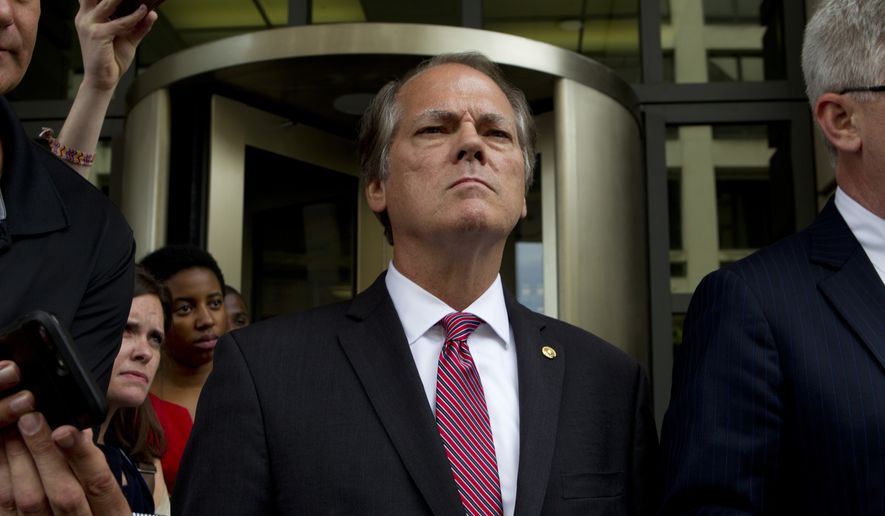A federal judge on Thursday agreed to delay setting a trial date for James Wolfe, the former Senate staffer accused of lying to the FBI about his personal relationships with reporters.
Defense attorneys and prosecutors told U.S. District Judge Ketanji Brown Jackson they need more time to exchange and review discovery materials. She agreed to push back scheduling Mr. Wolfe’s trial, a move that was not opposed by federal prosecutors or defense attorneys.
The Speedy Trial Act affords defendants the right to go to trial within 60 to 120 days of indictment, which means Mr. Wolfe’s target trial date would have been late summer or early fall. However, both sides and the judge agreed to exclude time under the act by six weeks, starting on Aug. 23 and ending when they meet again for another status hearing on Oct. 1.
A 30-year Senate employee, Mr. Wolfe is accused of lying to the FBI when he denied having any personal relationships with reporters. Federal prosecutors say he had a three-year romantic relationship with New York Times reporter Ali Watkins. The Justice Department has seized communications from Ms. Watkins as part of its investigation.
An indictment unsealed in June says Mr. Wolfe, 58, started a relationship an unnamed reporter. But it is widely believed that reporter is the 26-year-old Ms. Watkins, who has admitted a relationship with Mr. Wolfe. She has denied using him as a source for her articles, a claim that also has had doubt cast upon it.
Mr. Wolfe, who oversaw the transmission of sensitive documents for the Senate Select Intelligence Committee is accused of lying to the federal agents investigating committee leaks about former Trump campaign figure Carter Page. However, he has not been charged with actually leaking information.
In July, Judge Jackson rejected a motion by Mr. Wolfe’s attorneys to impose a gag order barring President Trump from talking about the case. Mr. Trump has referred to Mr. Wolfe as “a very important leaker,” essentially accusing him of a crime that has not been lodged against the ex-Senate staffer.
Judge Jackson said that misleading or inaccurate statements do not hinder a defendant’s right to a fair trial and impartial jury when she denied the motion.
• Jeff Mordock can be reached at jmordock@washingtontimes.com.




Please read our comment policy before commenting.